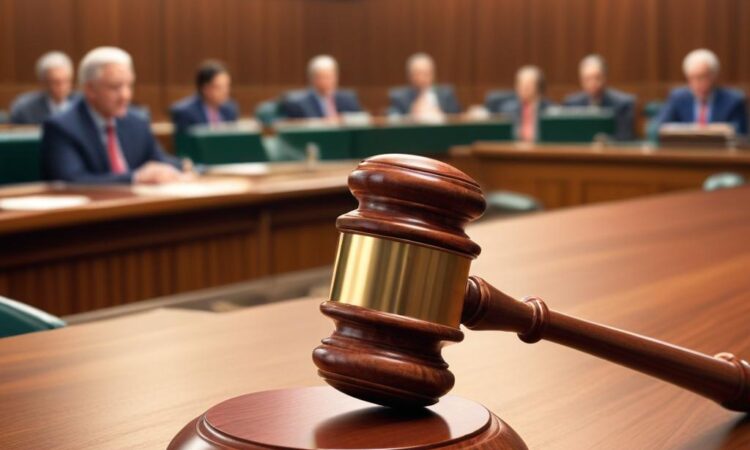FIA Seeks Rule Changes After President Allegations
The Fédération Internationale de l’Automobile (FIA) is seeking to limit the ways its leadership can be held to account for bad governance following allegations made against its president, Mohammed Ben Sulayem. The proposed changes, which are currently under review, have sparked significant controversy within the motorsport governing body and beyond, raising concerns about transparency and accountability within the organization.
The allegations against President Ben Sulayem, while not explicitly detailed in publicly available information, reportedly involve questionable financial practices and potential conflicts of interest. The exact nature of these allegations remains unclear, as the FIA has been tight-lipped about the specifics, citing ongoing internal investigations. However, sources within the organization suggest the allegations are serious enough to warrant a significant overhaul of the FIA’s governance structure.
The proposed rule changes are designed to strengthen the president’s position and limit the power of external oversight bodies. Critics argue that this move is a direct response to the allegations and an attempt to shield the president from accountability. They fear that these changes will weaken the FIA’s commitment to good governance and increase the risk of future misconduct.
One of the key proposed changes involves altering the process by which the FIA’s president can be removed from office. Currently, the process involves a relatively straightforward procedure with checks and balances to ensure fairness and transparency. The proposed changes would introduce additional hurdles and complicate the removal process, making it significantly more difficult to hold the president accountable for serious misconduct.
Another contentious proposal involves limiting the powers of the FIA’s ethics committee. This committee is responsible for investigating allegations of misconduct within the organization and recommending disciplinary action. The proposed changes would significantly curtail the committee’s investigative powers, making it more difficult to conduct thorough and impartial inquiries. Concerns have been raised that this would effectively weaken the committee’s ability to hold the president and other high-ranking officials accountable.
The proposed changes have been met with strong resistance from within the FIA itself, with several members expressing deep concerns about the potential consequences. Many believe that these changes would undermine the organization’s credibility and damage its reputation. They argue that strong governance structures and robust accountability mechanisms are essential for maintaining public trust and ensuring the integrity of the sport.
External stakeholders, including teams, drivers, and fans, have also voiced their opposition to the proposed changes. Many fear that these changes will create a culture of impunity within the FIA, where those in positions of power are shielded from scrutiny and accountability. They are calling on the FIA to reconsider the proposed changes and prioritize transparency and good governance.
The debate surrounding the proposed rule changes highlights a broader issue within international sporting organizations: the balance between leadership authority and accountability. While strong leadership is essential for effective governance, it must be accompanied by robust mechanisms to ensure that leaders are held accountable for their actions. A lack of accountability can lead to a culture of impunity, where misconduct goes unchecked and damage is done to the organization’s reputation and integrity.
The FIA’s response to the allegations against its president and the subsequent proposal of rule changes have raised serious questions about its commitment to transparency and good governance. The outcome of this situation will have significant implications for the future of the organization and the wider motorsport community. The ongoing debate underscores the need for greater transparency and accountability within sporting governing bodies worldwide.
The situation is further complicated by the lack of publicly available information surrounding the specific allegations against President Ben Sulayem. The FIA’s reluctance to provide details has fueled speculation and increased distrust among stakeholders. This lack of transparency only serves to exacerbate the concerns surrounding the proposed rule changes and raises questions about the organization’s commitment to open and honest communication.
Many are calling for an independent investigation into the allegations, conducted by an external body with no ties to the FIA. This would ensure impartiality and transparency, providing a clear and unbiased assessment of the situation. An independent investigation would also help to rebuild public trust in the FIA and reaffirm its commitment to good governance.
The coming weeks and months will be crucial in determining the future direction of the FIA. The outcome of the review of the proposed rule changes will be a key indicator of the organization’s commitment to accountability and transparency. The international motorsport community is watching closely, hoping for a resolution that prioritizes fairness, integrity, and good governance.
The situation serves as a stark reminder of the importance of strong governance structures and robust accountability mechanisms within all organizations, particularly those in the public eye. The FIA’s handling of this situation will set a precedent for other sporting governing bodies, highlighting the need for transparency, fairness, and a commitment to upholding the highest ethical standards.
The controversy underscores the need for greater scrutiny of the governance structures of international sporting organizations. Independent oversight bodies and robust whistleblower protection mechanisms are essential for ensuring accountability and preventing future instances of misconduct. The FIA’s response to this challenge will shape the future of governance within motorsport and provide valuable lessons for other organizations facing similar dilemmas.
This ongoing saga highlights the complex interplay between leadership, accountability, and transparency in the world of professional sports. The FIA’s actions, or inaction, will have significant ramifications for the sport and its future. The international community awaits a decisive and transparent response that addresses the concerns raised and restores confidence in the FIA’s commitment to ethical governance.

